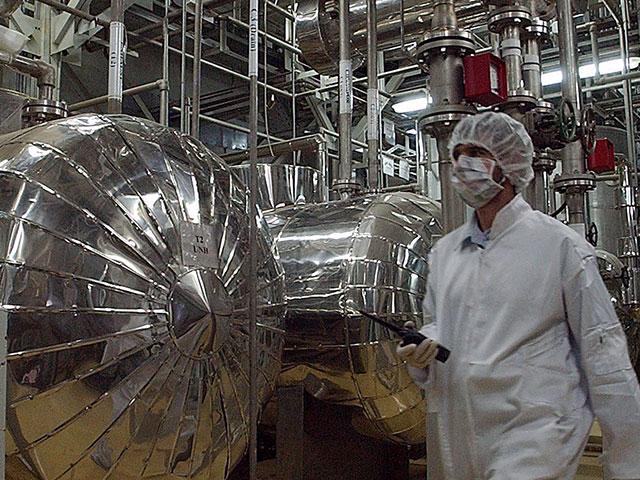
JERUSALEM, Israel – Iran says it’s preparing to manufacture a key ingredient used at the core of a nuclear weapon. It’s the latest sign that Tehran is testing the waters ahead of the inauguration of President-elect Joe Biden.
In a confidential report, The United Nations international atomic agency said Iran told them it was building manufacturing equipment in order to produce uranium metal, the Wall Street Journal reported.
While uranium metal has civilian uses such as enriching nuclear fuel for reactors that generate power, it can be used to make the core of a nuclear weapon.
According to senior Western officials, quoted by the WSJ, Iran hasn’t previously made uranium metal. The (IAEA) International Atomic Energy Agency said Tehran did not say when it would begin to do so.
Joel Rosenberg, Executive Producer of All Israel News and All Arab News, said Iran is already testing the waters.
“Iran is provoking a conflict. And I think a big question is whether President Biden and his team [will] figure out a way to stop them,” Rosenberg told CBN News.
Biden has said he wants to enter negotiations with Iran and possibly re-sign onto the Iranian nuclear deal, which the US agreed to while he was vice president. President Trump later pulled out of it and slapped sanctions on Iran.
“Negotiation would be a good way to do it. Nobody wants a war in this region again,” said Rosenberg. “But Biden is going to be tested.”
According to Rosenberg, Iran is already sending signals by grabbing a South Korean tanker near the Straits of Hormuz and raising its uranium enrichment level to nearly 20 percent.
Rosenberg said that the main question is whether or not Biden and his team of advisors have learned from the mistakes made by President Obama when he made the Iranian nuclear deal that angered Israel, the United Arab Emirates, the Saudis and the Bahrainians and other Arab states “who felt [they] were completely left out of the negotiating process.”
“But also the flaws in the deal that didn’t deal with missiles, that didn’t deal with terrorism, that didn’t deal with any of these other issues and left all these loopholes,” Rosenberg said.
Rosenberg said Biden will have to keep the maximum pressure on Iran that would create the right conditions to negotiate with Tehran and avoid war.
“But all eyes are going to be on Biden. And if he flinches in the light of Iran’s intransigence, there’s going to be a very troubled season ahead, he added.
One of those loopholes and a parallel threat is Iran’s widespread proxy war in the Middle East.
Israel allegedly carried out a series of airstrikes on Iranian-backed forces inside Syria this week leaving dozens wounded and dead. Israel didn’t claim or deny responsibility but Israeli Res. Brig.-Gen Assaf Orion said that’s a sign they probably carried out the attack.
“This strike, as much as it was conducted by Israel, which is a probable explanation, is in the context of Iran’s and Israel’s long campaign in Syria and that’s I would say, in a wider scale, Iran’s proxy warfare across the Middle East,” Orion told a Media Central briefing to journalists.
Iran uses proxies across the region to carry out attacks like using Hezbollah in Lebanon and Syria to attack Israel, the Houthis in Yemen to fire missiles at Saudi Arabia, and militias in Iraq to attack US troops there.
“The Iranian art of war is based on fighting on other people’s lands by other people’s hands,” said Orion.
“What we are actually looking at is Iran’s regional effort which is running in parallel to its nuclear effort,” Orion explained.
According to Orion, the biggest factor shaping events in the Middle East right now is the transition of power in the U.S.
“As the Trump administration is taking its last breaths on the eve of the Biden administration, Trump gave the Iranians the impression that he’s pretty unpredictable, I think rightly so,” he said.
The Iranians were extremely cautious about attacking the US and restraining its proxies while Trump was in office.
“The stage is set for the Biden administration. The overarching theme is of course the nuclear talks but while we focus on the nuclear as the most severe threat we shouldn’t overlook Iran’s dual strategy of being also indirect proxy wars militias across the Middle East,” Orion said.
As Big Tech censors media outlets they don’t like and shuts down various free speech platforms, be sure to sign up for CBN News emails and the CBN News app to ensure you keep receiving news from a Christian Perspective.
The remainder of this article is available in its entirety at CBN